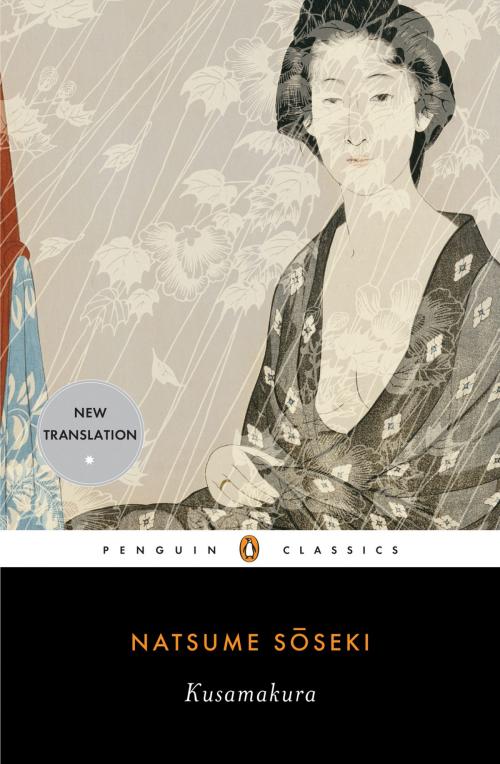| Author: | Natsume Soseki | ISBN: | 9781101097557 |
| Publisher: | Penguin Publishing Group | Publication: | January 29, 2008 |
| Imprint: | Penguin Classics | Language: | English |
| Author: | Natsume Soseki |
| ISBN: | 9781101097557 |
| Publisher: | Penguin Publishing Group |
| Publication: | January 29, 2008 |
| Imprint: | Penguin Classics |
| Language: | English |
A stunning new English translation—the first in more than forty years—of a major novel by the father of modern Japanese fiction
Natsume Soseki's Kusamakura—meaning “grass pillow”—follows its nameless young artist-narrator on a meandering walking tour of the mountains. At the inn at a hot spring resort, he has a series of mysterious encounters with Nami, the lovely young daughter of the establishment. Nami, or "beauty," is the center of this elegant novel, the still point around which the artist moves and the enigmatic subject of Soseki's word painting. In the author's words, Kusamakura is "a haiku-style novel, that lives through beauty." Written at a time when Japan was opening its doors to the rest of the world, Kusamakura turns inward, to the pristine mountain idyll and the taciturn lyricism of its courtship scenes, enshrining the essence of old Japan in a work of enchanting literary nostalgia.
A stunning new English translation—the first in more than forty years—of a major novel by the father of modern Japanese fiction
Natsume Soseki's Kusamakura—meaning “grass pillow”—follows its nameless young artist-narrator on a meandering walking tour of the mountains. At the inn at a hot spring resort, he has a series of mysterious encounters with Nami, the lovely young daughter of the establishment. Nami, or "beauty," is the center of this elegant novel, the still point around which the artist moves and the enigmatic subject of Soseki's word painting. In the author's words, Kusamakura is "a haiku-style novel, that lives through beauty." Written at a time when Japan was opening its doors to the rest of the world, Kusamakura turns inward, to the pristine mountain idyll and the taciturn lyricism of its courtship scenes, enshrining the essence of old Japan in a work of enchanting literary nostalgia.















